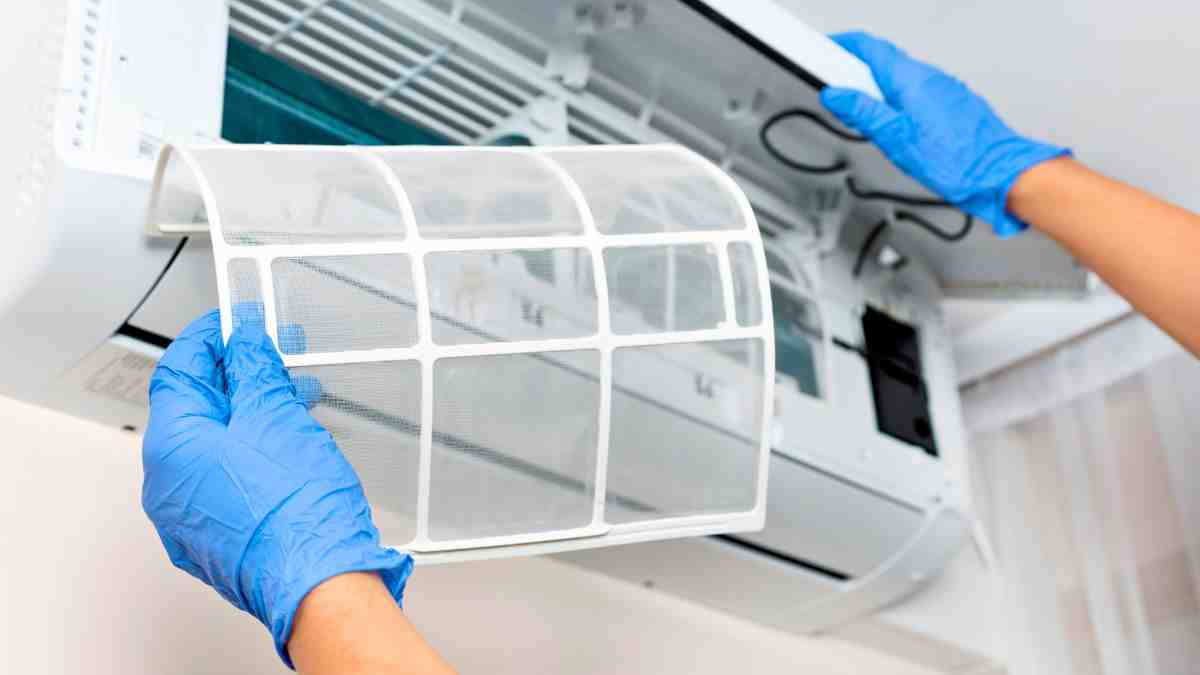In some cases, having something cleaner isn’t always better. Americans living in a home or flat with central air (also known as the integrated heating and cooling system), you’re probably aware of the concept of air filters.
These essential components are designed to enhance indoor air quality by capturing particles such as dust, pollen, mold, pet dander, and bacteria. Although these filters benefit everyone, they are particularly crucial for individuals with respiratory conditions like allergies, and asthma.
How they help you
Moreover, air filters help keep your HVAC system operating smoothly and efficiently, which can lead to a reduction in your electric bill.
Experts recommend changing or cleaning your filters every one to three months. The frequency depends on the type of filter you use and your specific home environment.
A viral video, boasting over 1.3 million views, features one part of the home expert duo @twinhomeexperts, who specializes in pest control. In the video, they discuss why purchasing more expensive, higher-quality filters may not always be the best choice.
- Consider the specific needs of your household.
- Evaluate the efficiency and cost of different filter types.
- Balance between performance and budget.
When deciding on the best filter for your home, it’s essential to weigh your options carefully, keeping both performance and cost in mind.
While strolling through Home Depot, an expert—who has previously offered advice on fridge water filters and toilet purchases—noticed a customer purchasing several packs of relatively high-quality filters. Priced at almost $25 each for a two-pack, the customer ended up spending over $70 solely on filters. Isn’t it too much money?
Understanding Filter Ratings
It’s crucial to be aware of the filter performance rating. The customer’s filters scored a 7, which might seem impressive at first glance.
The Hidden Cost of High-Performance Filters
The expert shared a crucial insight: “Here’s the problem, and it’s a significant, costly issue. Most people aren’t aware of this,” he explained. “Avoid these so-called high-performance filters.”
In the filter section of Home Depot, there’s a handy chart that categorizes products from Good, Better, Best, to Premium.
What Does a Higher Rating Mean?
The higher the rating, the finer the particles it can filter out. Some premium filters are crafted from superior and thicker materials, enabling them to capture smoke, bacteria, and even certain viruses that the “good” filters might miss.
- Good – Basic filtration, suitable for larger particles.
- Better – Improved filtration for a wider range of particles.
- Best – Advanced filtration, effective for smaller particles.
- Premium – Superior filtration, capable of capturing the smallest particles like smoke and bacteria.
Understanding Air Filter Longevity and Efficiency
When it comes to air filters, you’ll be pleased to know they typically need to be replaced less frequently, lasting anywhere from three to six months instead of just one to three months. However, even with this advantage, these filters might not be suitable for everyone.
Potential Drawbacks of Dense Air Filters
Experts have pointed out that due to their dense construction, these filters can sometimes restrict airflow from your HVAC system. This restriction can result in a higher energy bill and, more critically, could potentially harm your unit. This concern is shared by many HVAC specialists.
Expert Recommendations on Air Filters
In light of these issues, experts suggest opting for more affordable filters, unless there’s a specific health requirement that necessitates a more advanced filtering system.




